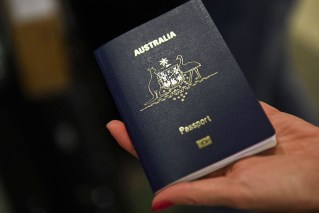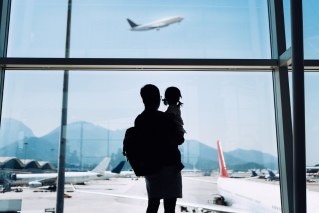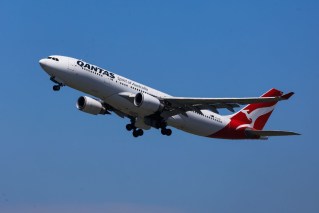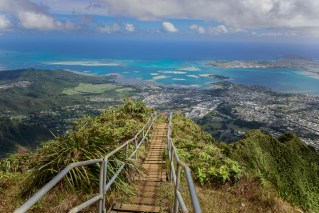The five travel questions Australians want answers to


To travel or not to travel ... that is just one question. Photo: Getty
Australians are a bunch of avid travellers, and our wanderlust was at an all-time peak before the pandemic clipped our wings.
Increasingly frustrated would-be globetrotters aren’t satisfied with the 7.692 million square kilometres of their own backyard, and are itching to get back into foreign lands.
Of course it’s not just adventure seekers, there are those with family, friends, business, and general life plans that lie outside our borders.
The government has recently come under fire for its border policies, which include banning Australian citizens and permanent residents from leaving the country – unless they can meet strict exemption criteria.
Tourism senior lecturer at UTS Business School David Beirman said there was not a time in his 40 years in the travel industry of the government so heavily restricting the movement of its citizens.
Australia has one of the harshest border policies in the world right now, but Dr Beirman said it wasn’t totally unique – similar situations are unfolding in Europe, he said.
“Public health concerns have overridden what globally we thought was a right to travel freely from one country to a destination of your choice,” he told The New Daily.
While travel is just one more unknown created by the coronavirus, here are five frequently asked travel questions – and their answers.
Where will I be able to go first?
It has long been assumed that the differences of the pavlova’s origins would be put aside so Australia and New Zealand can create their own travel bubble.
However, New Zealand has backed away from the plans given the recent turmoil in Victoria and the continuous new daily cases in other eastern states.
Dr Beirman now suggests Fiji as an outside chance.
The Pacific nation has been vocal about its desire to link up with Australia to stimulate both economies, and the Australian government has been warm in its response.
“It may well be Fiji due to the fact that most Aussies who go there do it as a package tour, which is far more manageable from a COVID-19 perspective,” Dr Beirman said.
Most Australians who go to NZ, he said, do it as independent travellers, often visiting friends and family.
“Administratively, having a common Australian policy on international travel is a nightmare as our passports do not distinguish which state we reside in,” said Dr Beirman, adding from a logistics perspective all states are not on a level playing field when it comes to opening bubbles and corridors.

Fiji’s heavy dependence on tourism has meant it has been hit hard by international travel bans.
What will it be like when we can travel?
Expect it to happen gradually, like we’ve seen with the easing of restrictions. It will likely be a select few countries that we’re able to travel to first – New Zealand and the Pacific, probably.
We will probably have to wait until there is a vaccine, or at the very least, until daily case numbers are extremely low, if not non-existent.
There’s also talk of things like immunity passports and tracking apps that will help travellers move safely throughout countries, while allowing authorities to track any potential virus spreads.
Why can’t I just ‘leave’ – isn’t it my right?
Prime Minister Scott Morrison enacted a ban on Australians leaving the country in March, and it’s in place until late October. Even then, it will probably be extended.
As Susan Harris Rimmer of Griffith University wrote in The Conversation this week, travel is not actually an Australian right.
“We don’t actually have a ‘right’ under domestic law to leave Australia – with the federal government able to control our movements under the Biosecurity Determination 2020,” Professor Rimmer wrote.
“… there is no Commonwealth legislation enshrining the right of freedom of movement.
“Even if there was, this doesn’t mean it would override legitimate public health concerns.”

The country’s airport terminals are still a shell of their former selves. Photo: Getty
Why are we still letting Australians return from overseas?
This brings us to our next point. Yes, there are still Australians arriving daily from overseas. Many of them have complicated reasons for returning home at this juncture.
Earlier this week TND spoke to Catherine Creber, an Australian woman who was making a life in Canada when the pandemic took hold.
After losing her job, visa and home, she needs to come home. The problem? There are lots of other Aussies in similar positions.
The government has capped daily arrivals into the international airports, to help manage quarantine requirements.
Airlines are still trying to make a buck, so they’re prioritising seats to people who can spend the extra money on business or first-class tickets.
There are still some 18,000 Australians stuck overseas, who are trying to come home. We’re accepting less than 3000 arrivals a week.
How come some people can leave and others can’t?
There are limited reasons people can leave the county, and they’re covered on the Border Force website.
As the reasons outlined above – we have so many people trying to get home, at such a great cost to themselves, that to add any more than necessary is counterproductive.
Professor Rimmer wrote: “Between March 25 and August 16, Australian Border Force received 104,785 travel exemption requests. Of these, 34,379 were granted a discretionary exemption.”
Although she noted, money still does talk quite loudly.
“Some perhaps more discretionary than others – entrepreneur Jost Stollmann was granted an exemption to travel overseas to pick up his new luxury yacht.”
Bonus round: When can I travel overseas again?
Unfortunately, no one knows.
“How long is a piece of string?” is the most frequent answer TND gets to this one.








